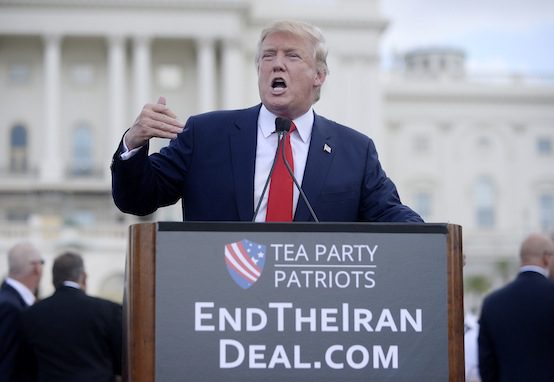Maximalist Demands Make Successful Diplomacy Impossible

Sina Azodi presents a reasonable proposal for diplomacy with Iran:
Washington’s concerns over Iran’s missile program are legitimate, but so are Iran’s concerns for its security. Diplomacy requires forgoing maximalist aspirations and a willingness to reach a compromise that serves the interests of all parties [bold mine-DL].
Azodi’s proposal makes sense as a way to address international concerns with Iran’s ballistic missile development while still taking Iranian security interests seriously. I don’t think that the Trump administration will follow these recommendations, but if they were followed they could help manage the disagreement over Iranian missiles without ratcheting up tensions too much and without jeopardizing the nuclear deal. Azodi specifically recommends building on the diplomatic success of the nuclear deal, and then reaching an accommodation with Iran on the missile issue:
To address Iran’s missile program, Iran and the US – in conjunction with the Europeans — could agree on a moratorium on missile testing, in return for economic or other incentives. Since Tehran already has said that it is not planning to increase the range of its missiles beyond 2000 kilometers, an agreement on this issue could also be part of a new understanding.
Beyond that, Azodi’s formulation of how diplomacy works is exactly right. It is obvious that successful diplomacy requires mutual compromise, and yet it is common in U.S. foreign policy debates to shun the very idea of compromising with adversaries and to view any concession, no matter how small, as the same as complete surrender. Unsurprisingly, the U.S. has become less and less effective in finding diplomatic answers to thorny international problems because of this preference for all-or-nothing posturing from many of our political leaders. Recognizing that the U.S. and its allies have to be willing to give the other side something of value in order to obtain their cooperation on disputed issues would be very helpful in reducing tensions with Iran, and it would also be readily applicable to other disputes, including the standoff with North Korea.
Comments